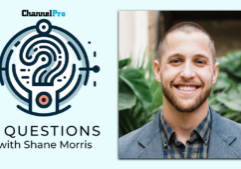
In the heart of the city, Dr. Smith’s Dental Haven (name changed) was a bustling dental office renowned for its expert care. However, behind the scenes, a lax approach to HIPAA compliance was lurking like a time bomb.
One fateful day, a cybersecurity breach exposed patient records to the dark web. The breach occurred due to outdated software and inadequate encryption. Patient names, medical histories, and even social security numbers were now vulnerable.
News of the breach spread like wildfire, leading to a storm of legal actions and reputational damage. Patients felt betrayed, and the media had a field day highlighting the practice’s negligence. Lawsuits piled up, with patients seeking compensation for the exposure of their private information.
The consequences were swift and brutal. The dental office faced hefty fines from regulatory bodies for violating HIPAA regulations. Patients who had once trusted the practice now seek dental care elsewhere. The financial toll was massive, not only due to the fines but also the legal fees and loss of business.
Technology plays a pivotal role in enhancing patient care and optimizing operational efficiency in the rapidly evolving landscape of healthcare. However, with the integration of digital solutions comes the responsibility to uphold patient data security and privacy. The Health Insurance Portability and Accountability Act (HIPAA) lays down stringent regulations to protect patients’ sensitive information. Managed Service Providers (MSPs) are crucial partners for healthcare organizations seeking to achieve and maintain HIPAA compliance. In this blog, we’ll explore the vital role MSPs play in ensuring HIPAA compliance for healthcare entities.
Understanding HIPAA Compliance
HIPAA was enacted in 1996 to establish privacy standards for safeguarding patients’ health information. Its primary objective is to protect the confidentiality, integrity, and availability of patients’ sensitive data. Healthcare organizations, including hospitals, clinics, and private practices, must adhere to HIPAA regulations to avoid legal repercussions and protect patients’ trust.
Challenges in Achieving HIPAA Compliance
Maintaining HIPAA compliance is no small feat. The healthcare sector is a prime target for cyberattacks due to the immense value of medical records on the black market. The challenges of compliance include:
- Evolving Threat Landscape: Cybersecurity threats continue to evolve, requiring constant vigilance to stay ahead of malicious actors.
- Complexity of Regulations: HIPAA’s intricate regulations demand a deep understanding of both technology and legal aspects.
- Resource Constraints: Healthcare organizations often lack the internal resources and expertise to manage complex compliance requirements.
- Technological Advancements: As technology advances, so do the risks. New tools and applications must be carefully integrated without compromising security.
The Collaborative Role of MSPs in Achieving HIPAA Compliance
MSPs are uniquely positioned to address the challenges of achieving and maintaining HIPAA compliance for healthcare entities. Here’s how they contribute:
- Proficiency in Security and Compliance: Many MSPs specialize in cybersecurity and compliance, staying updated on the latest threats and regulations. They bring an in-depth understanding of HIPAA requirements, helping healthcare organizations navigate complex standards and avoid costly violations.
- Risk Assessment and Management: MSPs conduct comprehensive risk assessments to identify vulnerabilities in the IT infrastructure. This includes analyzing network architecture, data storage, and access controls to pinpoint potential weaknesses and vulnerabilities.
- Tailored Security Solutions: Each healthcare organization has unique needs. MSPs design customized security solutions that align with a healthcare entity’s specific requirements and vulnerabilities. This includes encryption protocols, multi-factor authentication, and intrusion detection systems.
- Data Encryption and Protection: MSPs can implement robust data encryption mechanisms to safeguard patient information both in transit and at rest. This ensures that even if data is intercepted, it remains unreadable and useless to unauthorized individuals.
- 24/7 Monitoring and Incident Response: Many MSPs offer continuous monitoring of IT systems to detect and respond to any suspicious activities in real-time. Swift incident response minimizes the impact of security breaches and reduces potential data exposure.
- Employee Training: MSPs can provide training to healthcare staff to raise awareness about security best practices, such as identifying phishing attempts, securing devices, and handling patient data appropriately.
- Regular Audits and Assessments: MSPs may conduct regular audits and assessments to discover areas of noncompliance. This proactive approach identifies gaps in security measures and allows timely corrective actions.
By partnering with MSPs, healthcare organizations may achieve comprehensive HIPAA compliance, enhancing the safety of patient data and valuing the trust of their patients. Make no mistake, compliance isn’t a one-time achievement; it’s an ongoing effort that requires continuous monitoring, adaptation, and improvement. MSPs provide healthcare entities with the expertise and tools needed to meet these demands effectively.
Conclusion
In a healthcare landscape driven by technology, safeguarding patient data is paramount. The complexities of HIPAA compliance demand specialized knowledge and resources that many healthcare organizations struggle to manage internally. Managed Service Providers offer a solution, bringing expertise, tailored security solutions, and a commitment to keeping patient data secure. By partnering with MSPs, healthcare entities can focus on their core mission – providing excellent patient care – while leaving the intricate world of cybersecurity and compliance in capable hands.
SUURV Technologies, a leading managed service provider (MSP). If you are investigating HIPAA compliance for your healthcare business, we can help. Simply call (210) 874-5900 or fill out our contact form by clicking here.
Get Help Now!
We bring a laser focus to the three most critical functions of your company.
1. Business Operations

SUURV would love to talk with you about our vCIO and TAM support. It's the solution you've been searching for.
2. IT Infrastructure

THERE'S NEVER a one-size-fits-all approach. We implement custom solutions that scale with your growth.
3. Employee Support

You spent a lot of time building your team. We work around the clock to support them.

















